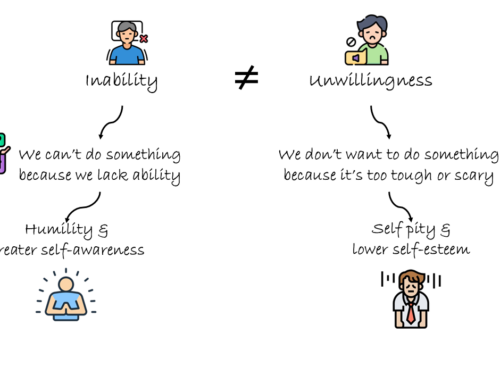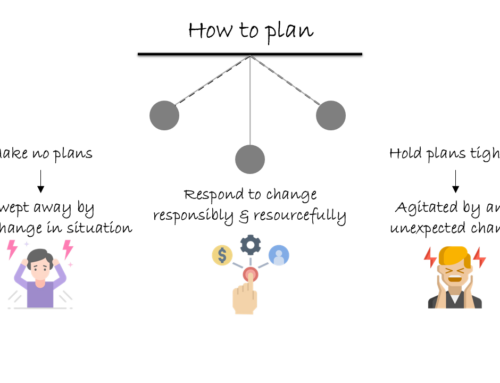Will negative imagination lead to self-fulfilling prophecies? – When a person having unhealthy habits is told to imagine the disasters that may result if they continue with those habits, they worry, “Won’t such imagination become a self-fulfilling prophecy?”
Not necessarily; we need to know the difference between what we imagine and why we imagine. Suppose a person constructing a skyscraper building imagines where and how fire might occur in it. Thereafter they design sufficient fire exits and position adequate fire extinguishers. Will their negative imagination itself cause fire to occur? Certainly not; if and when fire occurs for whatever reason, their imagination will prevent the fire from causing excessive damage.
We can apply such purposefulness to our negative imagination too by reminding ourselves why we are imagining negative possibilities. If we think about how a negative possibility may actualize and what all we can do to prevent it from occurring or escalating, then we will be better equipped to deal with it. In this world, bad things can happen to everyone, even to those who think positively. That’s why it’s our duty to use our intelligence to foresee future dangers and prepare for them.
We needn’t ascribe some mystical power to our thoughts by which just thinking about a possibility will somehow make that into a reality. If someone thinks negatively and then lets that thinking lead them into negative actions, they will themselves contribute to creating the situations that will make their nightmares into reality. The link from negative thinking to negative acting to negative living is logical, not diabolical. Pointing to this logical link, the Bhagavad-gita cautions against self-destructive thinking characterized by fearfulness, lamentation, moroseness (18.35). Yet the same Gita also urges us to contemplate the consequences of our actions and then choose wisely (18.63).
One-sentence summary:
Imagining negative possibilities can become self-fulfilling prophecies if we act negatively but can become self-correcting precautions if we act positively.
Think it over:
- When does negative imagination lead to a self-fulfilling prophecy?
- How can negative imagination prevent negative realities?
- How can you use your negative imagination constructively?
***
18.35: And that determination which cannot go beyond dreaming, fearfulness, lamentation, moroseness and illusion – such unintelligent determination, O son of Prutha, is in the mode of darkness.






Nice ,please keep it up